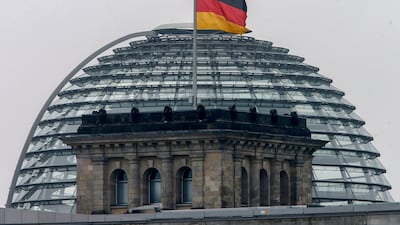Germany has blamed Russia for a cyber attack on politicians just weeks before its general election.
Berlin said it had “reliable information” that Russia’s GRU military intelligence service was behind the attack.
The German Foreign Ministry said hackers had tried to steal email passwords from lawmakers in what may have been an attempt at election meddling.
Analysts fear that stolen details could be used to mislead voters by publishing fake messages from politicians’ accounts.
Berlin “views this unacceptable activity as a danger to the security of the Federal Republic of Germany,” Foreign Ministry spokeswoman Andrea Sasse said.
“These attacks could serve as preparations for influence operations such as disinformation campaigns connected with the election,” she said.
Ms Sasse described the attack as a “severe strain on bilateral relations” and said German officials had demanded that Moscow end it now.
Germany reserves the right to take further measures, she said. Russia is under EU sanctions after a series of disputes between Moscow and the West.

The phishing attack in Germany was attributed to a hacking campaign known as Ghostwriter, which has been linked to similar efforts elsewhere.
The GRU was previously accused of meddling in the US presidential election in 2016. Russia denies interfering in foreign elections.
The German election is on September 26. It is the first since 2002 at which Angela Merkel is not seeking the chancellorship.
The question of ties to Russia, especially around the future of controversial gas pipeline Nord Stream 2, has been a point of contention during the campaign.
Experts say the Green party, which wants to scrap the pipeline, has been the target of some online attacks.
A recent study by the German Council on Foreign Relations said Russia’s interest was in preventing a major shift in German policy.
Russia has a “well developed information apparatus at work in Germany and in the German language,” it said.
Previous attacks in the run-up to regional elections “show that Russia has the means and the will to target German politicians”.


